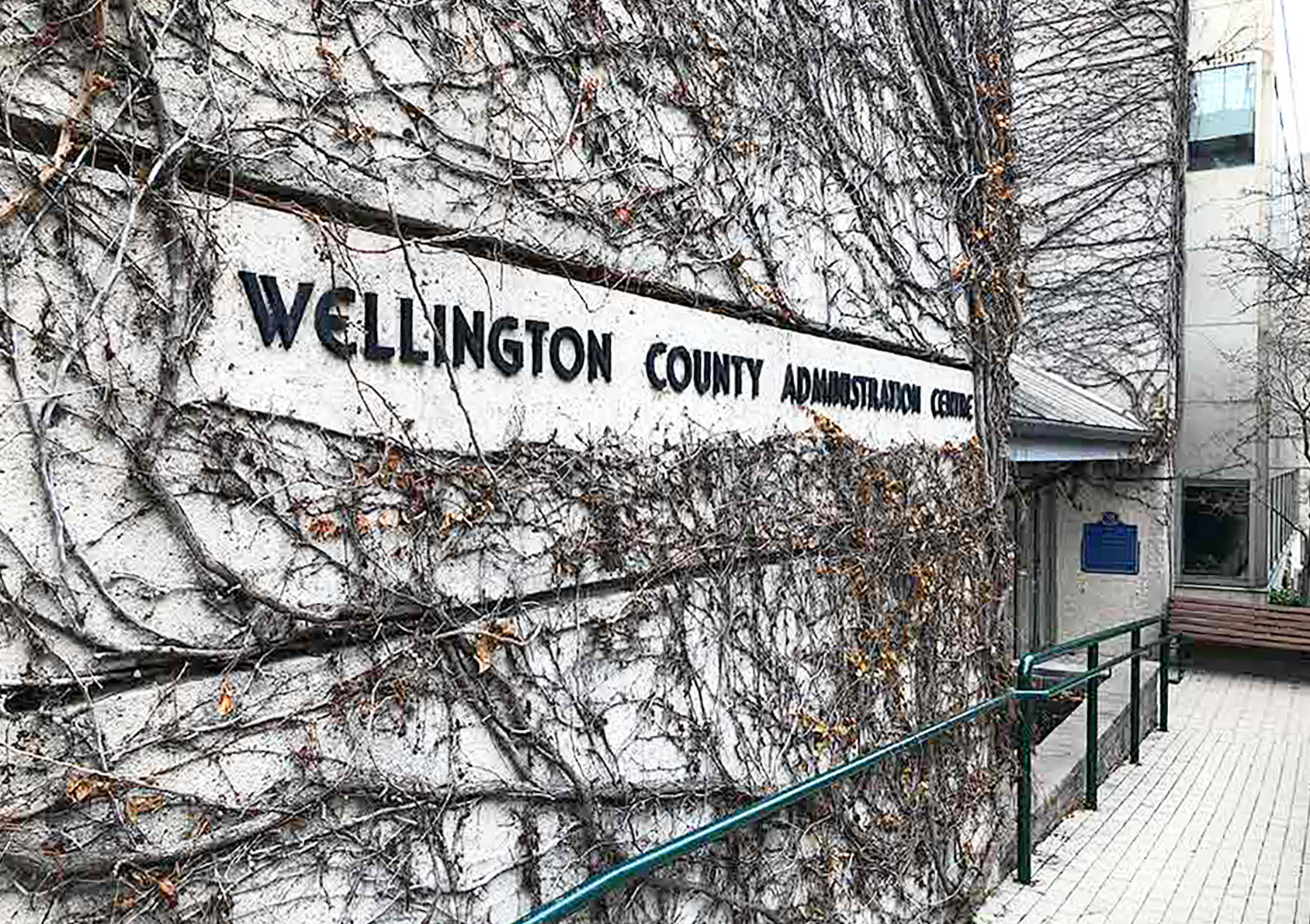GUELPH – The situation has been described as a crisis, complex, a failure (both morally and systemically), overwhelming and simply as “crap.”
Those descriptors were volunteered by participants at a January symposium when describing the current health and housing situation in Guelph and Wellington County.
In short: Wellington County and Guelph have a serious problem.
Writing in a March social services committee report, county social services director Luisa Artuso stated the good work happening locally “is not meeting the needs of the people.”
“We need to do more, and we need to do things differently.”
Assisted by consultant-strategist Rebecca Sutherns, the county organized an invite-only gathering at the Guelph Delta Hotel over two days in January to understand health and housing issues.
“The main reason for initiating the symposium was to address the lack of integration and expansion of health and social housing services,” Artuso stated in her report.
More than 100 people attended: those credited with “lived experience” accounted for 13 of the participants; service providers accounted for 54 participants; elected officials, 22; seven were from Indigenous-led organizations; and finally six were municipal staff.
According to the county, the symposium’s $65,760 price tag is fully covered by federal taxpayers.
Room rental and food cost $29,000; audio/video was $5,500; people with “lived experience” were paid a collective total of $4,500; speakers and facilitation of the event were $25,090; and supplies cost $1,607.
Participants were engaged and interested in what was happening, Artuso reported to the committee on March 13.
Despite reporters not being permitted at the symposium – officials say to protect the personal privacy of participants – the Advertiser has previously reported on some participants’ mixed opinions about the event that run contrary to the official narrative.
The big takeaway, after two days of panels and presentations, was an “overwhelming” desire for a community housing plan incorporating perspectives of homeless people.
If successful, the plan would involve integrating health supports into all housing services, bettering communication between health care providers, and introducing a measurable way to end homelessness and waiting lists for social housing.
Inadequate resources
The symposium highlighted inadequate funding and resources for health and housing, further inflamed by information deficits, ill-defined roles, and service providers not collaborating.
Participants said they want the community to be known for providing caring, respectful, holistic services wrapping around a person wherever they’re at in life, according to Artuso.
The county and a consultant are working to assemble an advisory group with homeless people, or people who have been homeless, as well as a separate advisory group with Indigenous people.
A Health and Housing Community Planning Table was also started following the symposium, with more members expected to join following another symposium scheduled for April 17 at the Delta Guelph Hotel and Conference Centre.
The planning table will focus on integrating health and housing services, and a new “health and housing project manager” will support the table’s work, Artuso stated.
The manager’s position, a two-year contract for $137,000, hasn’t yet been filled.
The planned April symposium is expected to be more transparent, and is anticipated to draw a larger crowd to hear about a variety of issues ranging from encampments to advocacy.
A morning portion of the symposium will be live-streamed, and reporters invited to attend.
January’s symposium was a first step, Artuso said, in understanding that change is needed to the “current service framework.”
She ended her report on an optimistic note, affirming a willingness from the community to work together on a local housing plan “to instil hope for a better future.”
“It is up to us and the community around us, not just our public officials or bureaucrats or service providers, but also the community,” Artuso said.



